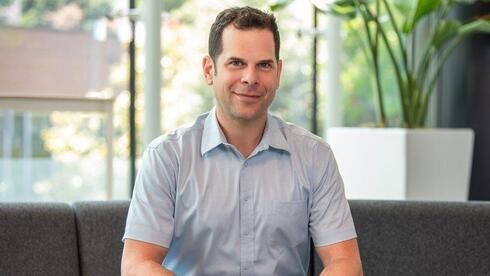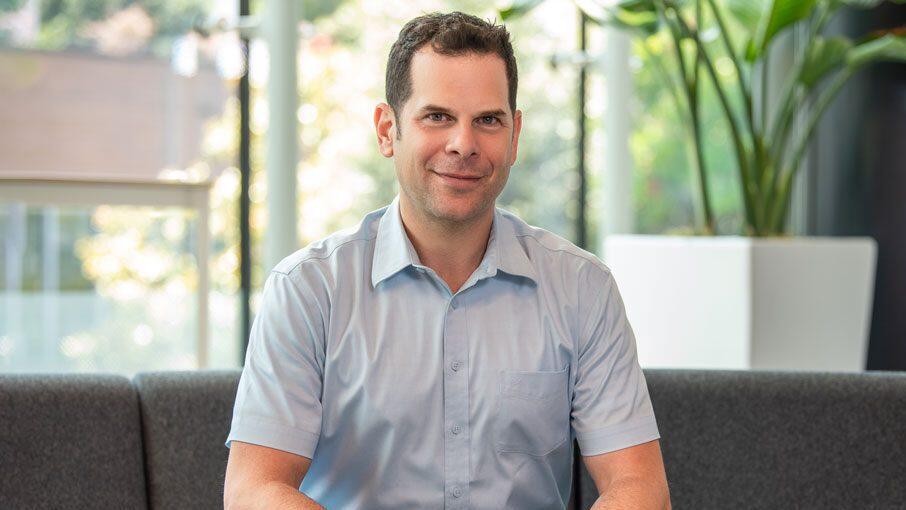
2025 VC Survey
Israeli government’s role in reviving high-tech: Travel, diplomacy, and AI investment
Policies to ease international business, bolster AI research, and manage global narratives are critical for growth, says Next47’s Moshe Zilberstein.
CTech’s 2025 VC Survey was joined by Moshe Zilberstein, Partner at Next47 who shared insights on how the Israeli government might be able to take the burden off of Startup Nation during the war and help it recover from a turbulent few years.
One point was directed at investing in AI research and compute resources: "Prioritize funding for education and infrastructure to drive advanced AI research, with a heightened focus on generative AI," he said. "By ensuring access to cutting-edge compute resources and fostering expertise, Israel can regain its competitive edge in this evolving field."
Another point pertained to public diplomacy and how the Israeli government should make more of an effort to protect the country’s reputation overseas. “Take responsibility for educating, explaining, and advocating for Israel’s self-defense actions to a global audience. Share reliable, accessible, and relatable information to reduce the reputational burden on startups. Allow them to focus on innovation and growth without having to address complex geopolitical narratives,” he added.
You can read the entire interview below.
Fund ID
Name of fund/funds: Next47
Total sum of the fund: $1B+
Partners: Lak Ananth, Matthew Cowan, T.J. Rylander. Moshe Zilberstein in Israel
Notable/select portfolio companies (active): VAST Data, Claroty, Zesty
Notable exits: Noname
2024 is over. How can you summarize it in terms of the Israeli high-tech industry?
2024 forced the Israeli tech industry to practice management under conflict. While international business travel remained subdued compared to pre-2023 levels, the industry saw a record year in M&As, according to Vintage Investment Partners. M&A deals reached a new record of $10.5 billion this year, 22% higher than the previous peak in 2021. The cybersecurity sector demonstrated particular resilience, with numerous seed-stage startups securing funding by incorporating generative AI capabilities into their solutions.
Perhaps most significantly, global tier-A firms showed increased interest in early-stage Israeli companies, actively leading seed rounds, some with and some without people on the ground. This demonstrates confidence and a shift from their historical focus on later-stage investments in Israel.
Looking ahead to 2025 - What challenges and opportunities await the Israeli high-tech sector in the coming year, and how are you, as investors, preparing for them?
As we look ahead to 2025, it’s impossible to ignore the generative AI revolution, which is creating new opportunities and leveling the playing field. While the potential in this space is enormous, we are concerned that Israel is currently experiencing a shortage of deep expertise in core generative AI development. Perhaps for the first time in our tech ecosystem’s history, we find ourselves, at least for now, without the technological edge that helped us surpass incumbents.
The fundraising landscape remains complex. While some VC firms are expected to face heightened challenges in raising new funds due to both global and local headwinds potentially tightening the cash supply, we are optimistic that the IPO window will start to open in 2025. Once the backlog clears and Israeli companies achieve successful IPOs, it will likely reinvigorate the ecosystem.
As for us at Next47, we’re looking for talented teams that effectively leverage generative AI to tackle previously intractable problems.
How will new American leadership affect the global high-tech industry or economy? And where does this place Israel and its entrepreneurs?
The election results leave room for cautious optimism, at least when it comes to market conditions for tech companies. While here in Israel, we’re preoccupied with war on several terror fronts, the global tech scene is beginning to show signs of recovery after a long stagnation. This is due to interest rate cuts by the American Central Bank, and the expectation that Trump will prioritize acceleration of the business sector. Morgan Stanley spoke about being optimistic towards IPOs in 2025, as they claim that after two and a half quiet years, the market is ready to show growth-stage companies their worth.
What are the three most important things the Israeli government should do today to accelerate the high-tech engine in the coming year?
- Support Foreign Airlines and Ease Travel: Actively incentivize foreign airlines to resume regular flights to Israel and streamline travel processes. Making travel easy and accessible is critical for re-establishing international business ties and enabling the movement of talent, investors, and entrepreneurs.
- Lead in Public Diplomacy: Take responsibility for educating, explaining, and advocating for Israel’s self-defense actions to a global audience. Share reliable, accessible, and relatable information to reduce the reputational burden on startups. Allow them to focus on innovation and growth without having to address complex geopolitical narratives.
- Invest in AI Research and Compute Resources: Prioritize funding for education and infrastructure to drive advanced AI research, with a heightened focus on generative AI. By ensuring access to cutting-edge compute resources and fostering expertise, Israel can regain its competitive edge in this evolving field.
Are there new sectors you see as relevant? Are there any fields you anticipate will weaken significantly in the coming year?
I believe Defensetech and Robotics will be rising sectors in 2025. The increasing global focus on security and automation is driving demand for innovative solutions in these areas. On the other hand, we’re seeing declining interest in companies whose solutions rely solely on data aggregation and analytics platforms. With generative AI rapidly advancing, many of these functions are being commoditized, making it harder for companies to maintain a competitive edge.
Is Israel missing out on the AI revolution in the global arms race? If not, what should the local industry focus on to join the global race?
Israel is not missing out on the AI revolution, but we’re not leading it either—which is unprecedented and unfortunate. Historically, Israel has been recognized for its technological edge, even as we had to catch up on product or go-to-market strategies while scaling globally. This time, however, we’re not in the driver’s seat. The AI revolution requires billions in resources to train advanced models and hire talent with the deep experience necessary for developing new ones—both currently in short supply locally.
To overcome these challenges, we must address both shortages. This means investing heavily in compute infrastructure while ensuring researchers have access to these resources. Simultaneously, we must advance AI research and nurture talent in this field.
Companies like AI21 and Mentee Robotics are inspiring examples of local innovation leading the way, but we need to see more of these efforts to firmly establish Israel as a global AI leader once again.
Could the global IPO drought end in the coming year?
Yes, we believe so.
From an investor's perspective: will the coming year be better for early-stage startups or more mature companies?
A company’s success isn’t determined by its stage of development, but rather by its ability to innovate and create meaningful impact. We're witnessing a transformative moment in tech, particularly with the advances in AI, that creates opportunities across the entire company lifecycle. While mature companies can leverage their existing resources and customer base to implement breakthrough technologies, early-stage startups have the agility to build revolutionary solutions from the ground up. The companies that will thrive – regardless of their stage – are those that effectively harness new technologies to solve real problems and push the boundaries of what's possible.
Did you raise fund money in 2024 for an existing fund or a new one? What are your expectations regarding this matter for 2025?
We’re not planning to raise funds soon, we still have $1B+ to deploy.
How many investments did you make in 2024, and how does it compare to previous years?
We were more active in 2024 compared to 2023, and expect this trend to continue.
Provide an example of an intriguing investment you made in 2024. What sets this company apart, or what is distinctive about its sector?
In 2024, we led a $30M Series B investment in Encord, an AI data development platform for advanced vision and multimodal teams. Encord is unique in how it uses automation to equip AI teams with the resources needed to make large datasets AI-ready and get models to production faster.
AI models are only as good as their data, and Encord is the leading platform for AI data curation and labeling, combining automated techniques with human-in-the-loop workflows to dramatically reduce time and cost. By addressing one of AI development's biggest bottlenecks—data readiness—Encord empowers teams in sectors like autonomous vehicles, medical imaging, and robotics. Its transformative technology and rapid adoption among top-tier AI teams made this an exciting and impactful investment.
Two notable companies that you think will thrive in 2025.
Company Name: VAST Data
Sector + description of the product/service: Vast operates in the enterprise data infrastructure sector, offering its Universal Storage platform, which combines flash storage with unmatched scalability and cost efficiency. It also functions as a unified database, integrating the features of databases, RAG, data warehouses, and data lakes into one, single platform. This allows seamless management of structured and unstructured data, powering real-time analytics and AI-driven workloads in modern data centers and cloud environments.
Investment amount + total: $118M round E at $9.1B, total raised >$350M
Founding Year: 2016
Reasoning why this is their year: 2025 is shaping up to be the year of AI in the enterprise, and Vast is perfectly positioned to lead this transformation. Its platform addresses critical data management challenges, offering the scalability and efficiency needed for AI-driven workloads. Additionally, with the IPO window expected to reopen, Vast is well-poised to capitalize on its market leadership and innovation.
Company Name: Exodigo
Sector + description of the product/service: Exodigo operates in the infrastructure and construction technology sector, focusing on subsurface mapping. Their platform leverages AI and sensor fusion to create accurate underground maps—covering utilities, pipelines, and other obstacles—without the need for exploratory digging.
Investment amount + total: $75M Series A, $116M Total
Founding Year: 2021
Reasoning why this is their year: Exodigo’s technology offers precise, non-invasive underground mapping, helping to minimize project risks, timelines, and costs. As the demand for large-scale infrastructure projects rises, it has become an essential solution for efficient and accurate planning.













